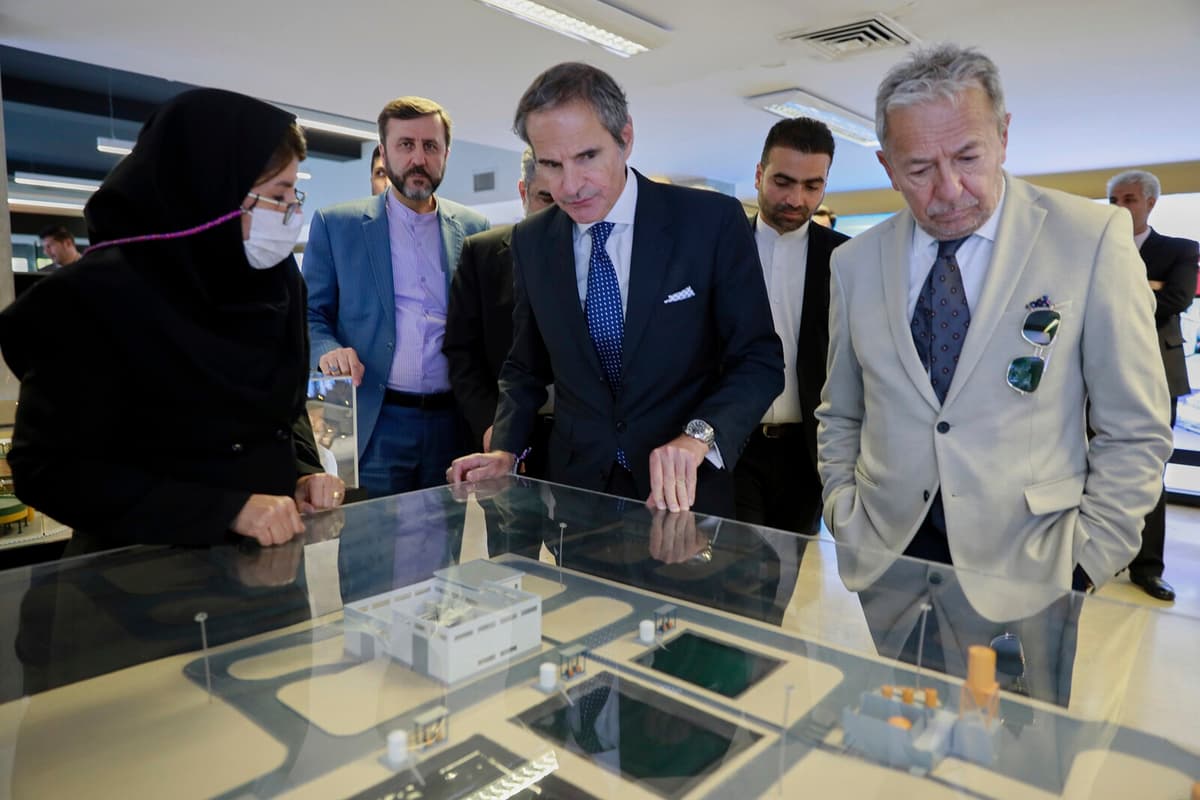”The significant increase in production and accumulation of highly enriched uranium by Iran, the only non-nuclear power producing such nuclear material, is strongly worrying”, reported the UN's atomic energy agency IAEA at the end of May.
According to the report, the Islamic Republic has accumulated more than 400 kilos of uranium with an enrichment level of up to 60 percent. Then, only minor technical steps are said to remain for it to become pure enough to be used in weapons.
The amount of highly enriched uranium would be enough for nine-ten atomic bombs, but a detonator and something to launch a bomb with are also needed.
Neither the UN's observers, analysts, nor intelligence services in Western countries say they have seen anything that suggests a larger, military nuclear program is underway in secret in Iran.
Negotiated with the USA
In April, the USA and Iran, on the USA's initiative, began indirect negotiations on a new nuclear energy agreement. It would replace the agreement that was entered into in 2015 and then broke when the USA withdrew during Donald Trump's first term. IAEA chief Rafael Grossi was asked at that time how long it would take for Iran to produce a nuclear weapon and replied that it would be a matter of "months, not years”.
The talks about a new agreement stalled, however, and Trump warned that an "enormous conflict" risked breaking out as a result.
Last Thursday, IAEA came out and stated that Iran, for the first time in 20 years, does not follow its commitments under the non-proliferation agreement. In response, Iran announced that a third nuclear energy facility would be put into operation, with more modern centrifuges.
The day after, Israel launched a large-scale attack, which has been motivated as self-defense against an "existential" and imminent nuclear threat. Unverified Israeli information claims that Iran has made "concrete progress" with weapon components and conducted various tests.
Sources: Several years away
Iran has stepped up the enrichment of uranium since the previous nuclear energy agreement fell, but insists that the program is entirely civilian. The longer the enrichment has progressed, the greater the question marks have become, since uranium of such high purity is not needed for any civilian purposes.
Four American intelligence sources tell CNN that they do not share Israel's picture of Iran being close to posing a nuclear threat. They estimate that the country needs up to three years if they want to manufacture - and also be able to use - a nuclear weapon.
Israel has damaged Iran's nuclear energy program and facilities during the past week, but international experts do not believe that any decisive damage has been caused. If it were the case that Iran wants to produce a nuclear weapon, such a plan is now estimated to have been delayed by up to a year.
In 2015, the nuclear energy agreement JCPOA was concluded between Iran and the "P5+1" - the five permanent members of the UN Security Council (France, China, the United Kingdom, Russia, and the USA) and Germany.
The agreement aimed to avoid Iran developing nuclear weapons. It would provide greater insight into the country's atomic energy program, which would also be significantly reduced and limited.
The enrichment of uranium would be limited to a purity level of just under four percent - far below the 90 percent required to be used in a nuclear weapon. In exchange, international sanctions against Iran were lifted.
In 2018, US President Donald Trump decided to leave the agreement and re-impose tough sanctions, which also applied to anyone trading with Iran.
Iran then deviated from the agreement and began to step up the enrichment of uranium. The country today has far more uranium with a much higher purity level than what JCPOA allowed.






